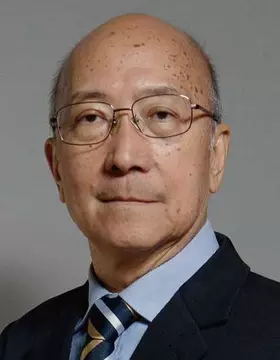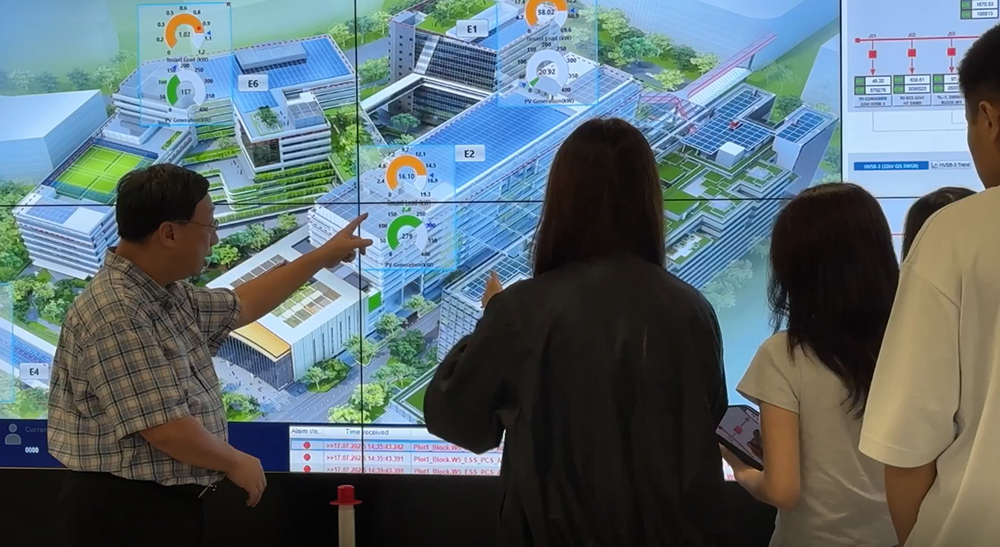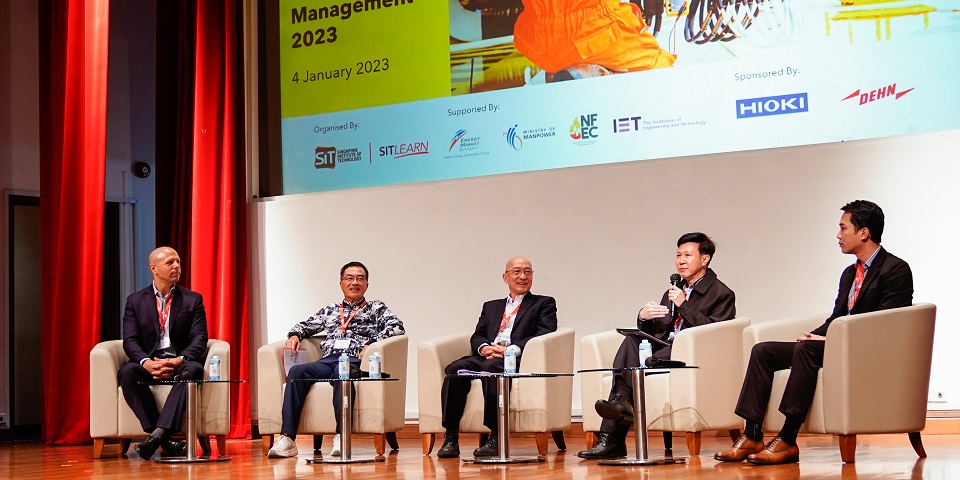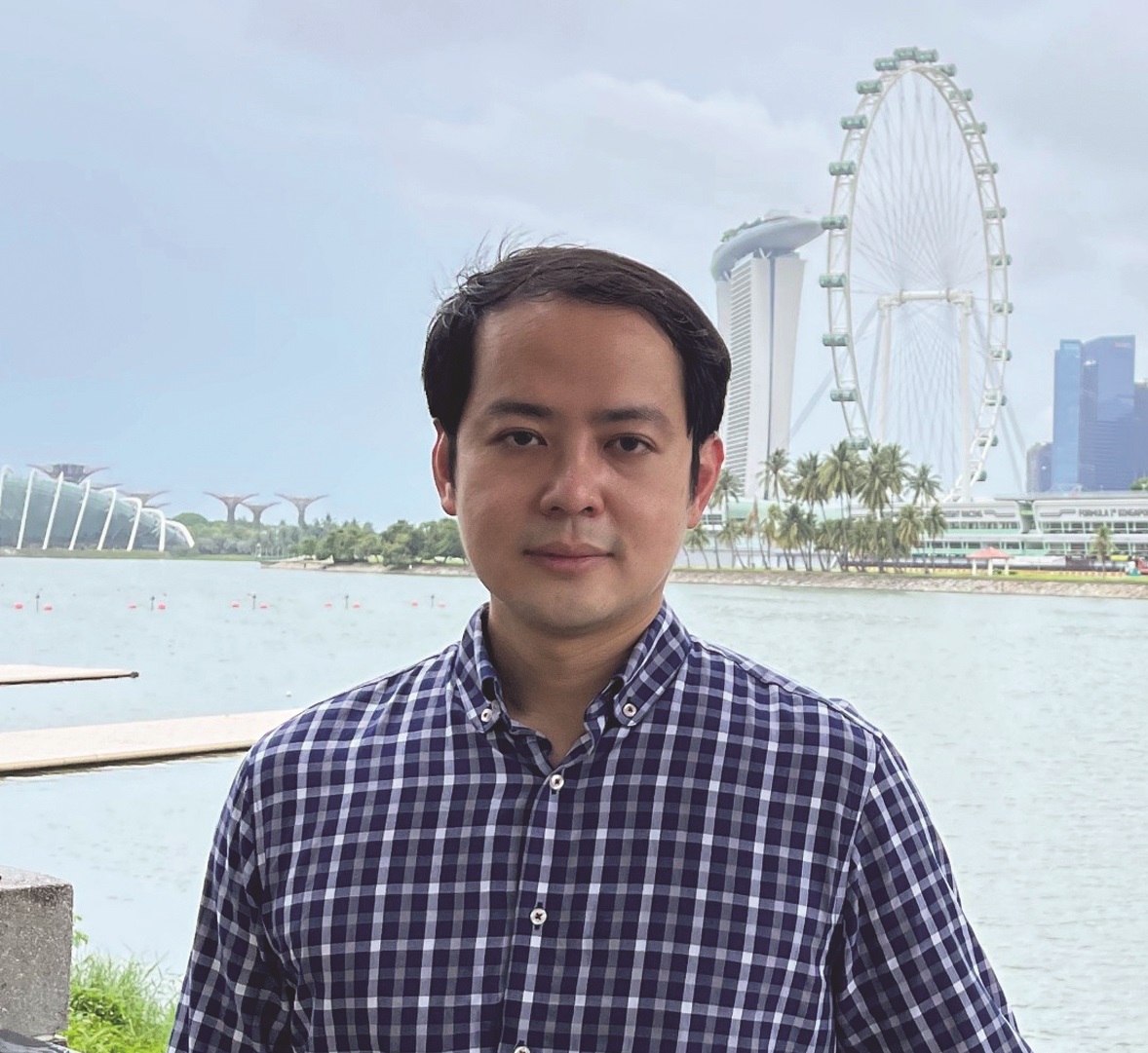
Course Overview
PDU (PEB) – Pending approval
Effective from AY2025/26 Trimester 2 (January 2026), the Postgraduate Certificate in Electrical and Electronic Engineering will be transiting to Graduate Certificate in Electrical and Electronic Engineering. For more details, please refer to the full notice here.
This module is designed to equip participants with in-depth knowledge and competency in selected topics in electrical engineering, such as electrical installation design, earthing systems, and lightning protection for the built environment.
Participants will explore the design considerations for societal responsibilities, public safety, environment, and sustainability in the electrical engineering context. Additionally, key components relevant across major industries will also be covered, including lighting, fans, HVAC, pumps, maintenance, automation, motor drives, power conversion, and life cycle costs.
The module will be based on relevant codes of practice from the perspective of practising engineers, and it aims to broaden and enhance engineers’ expertise to remain relevant in the industry.
Who Should Attend
- Graduate engineers preparing for electrical Professional Practice Exam (PPE) paper of the Professional Engineers Board, Singapore
- Practising engineers who wish to gain an in-depth knowledge and competency in the selected topics in power engineering
- Graduates of SIT-NU BEng Electrical Power Engineering (EPE) programme
Prerequisites
- Bachelor degree in Engineering
- At least one-year of relevant working experience
What You Will Learn
- Establish a regulatory framework and registration of professional engineers, including professional conduct and ethics
- Design the philosophy and considerations for power projects
- Design approaches and considerations to comply with the requirements of SS 638 code of practice for electrical installations.
- Protect against electric shock or flashover, thermal effects, overcurrent and faults.
- Select, size, and protect cables appropriately
- Apply software for analysis and design
- Implement lightning protection principles, including the basic protection scheme and requirements of lightning standards and risk assessment
- Provide overvoltage protection for low-voltage systems, including protection against lightning and electromagnetic impulses
- Understand the principles of electromagnetic compatibility, which include the electromagnetic environment, electromagnetic interference and coupling mechanisms
- Understand lighting requirements for the workplace, indoors and outdoors, including emergency lighting and voice communication
- Install a standby power generator system
Teaching Team

Er. Audrey Ang Siew Lin
Senior Professional Officer, Singapore Institute of Technology

Er. Dr. Lock Kai Sang
Professor, Engineering, Singapore Institute of Technology
Schedule
| Course Run | Dates | Time |
|---|---|---|
| September – November 2024 Run | 6 September – 29 November 2024 (Every Friday*) | 7:00 pm – 10:00 pm |
*Subject to change
Certificate and Assessment
A Certificate of Attainment will be issued to participants who:
- Attend at least 75% of the module; and
- Undertake and pass credit bearing assessment (worth 6 credits) during the module, which can be stacked towards the Postgraduate Certificate in Electrical and Electronic Engineering
Participants who meet the attendance requirement but do not pass the assessment will receive a Certificate of Participation.
Assessment Plan
The participant's progress and understanding will be assessed through three assignments and a final examination.
Fee Structure
The full fee for this course is S$3,606.88
| Category | After SF Funding |
|---|---|
| Singapore Citizen (Below 40) | S$1,082.06 |
| Singapore Citizen (40 & Above) | S$420.25 |
| Singapore PR / LTVP+ Holder | S$1,082.06 |
| Non-Singapore Citizen | S$3,606.88 (No Funding) |
Note: All fees above include GST. GST applies to individuals and Singapore-registered companies.
Course Runs
Learning Pathway

Earn a Postgraduate Certificate
New Engineering Micro-credentials Launching Soon!
Exciting news! We are introducing new micro-credentials in Electrical and Electronic Engineering & Infrastructure and Systems Engineering. Be among the first to know by registering your interest today! Register now →








